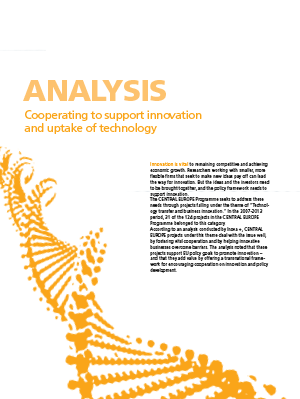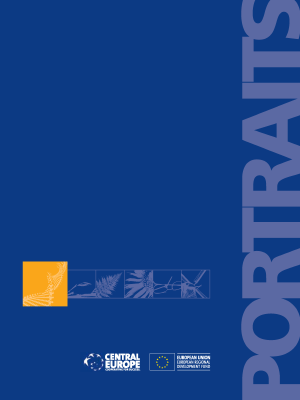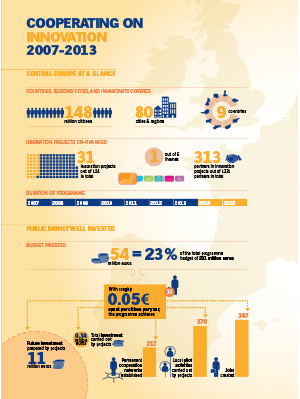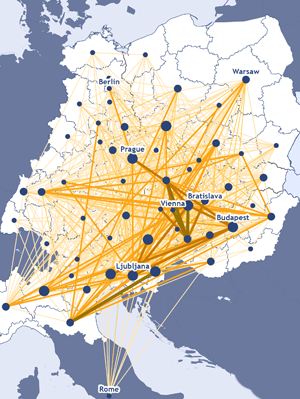We make CENTRAL EUROPE more innovative and competitive
The innovation priority addresses key socio-economic challenges and needs within central Europe that are related to smart growth as defined in the Europe 2020 Strategy. It aims at more effective investment in research, innovation and education. The projects funded under this priority help strengthening potentials of technology-oriented areas that are destinations of foreign investments and capital flows, notably through better linking actors of innovation systems. They also address regional disparities in knowledge and education such as brain drain, and strengthen capacities and competences for entrepreneurship and social innovation, also responding to challenges related to demographic change.

Project examples
Migration
#cooperationiscentral to welcome refugees
The war in Ukraine forced many people to flee their homes and seek refuge in central Europe. Local and regional authorities face similar challenges in supporting these new arrivals. We have pooled together solutions from our projects that can help fast-track the integration of people affected by this crisis. > browse solutions
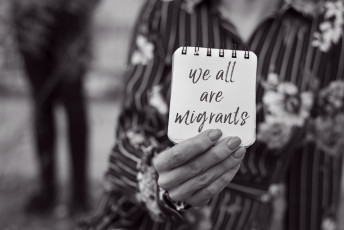
entrepreneurial skills
#cooperationiscentral
to bring innovative foods to the market
Innovation in the food sector brings competitive advantage for a region - but companies have to get health, packaging and safety matters right first. I-CON trained food companies
to improve their cross-sectoral competences and links them
through their Atlas mapping tool. > project website

social ENTREPRENEURship
#cooperationiscentral
to hand over family businesses
Although family businesses are a major pillar of central Europe’s
economy, they often fold when founding members retire.
ENTER-transfer developed innovative tools and services to streamline the business succession process and help sustain family businesses. > project website

Industry 4.0
Advanced manufacturing
#cooperationiscentral
for a competitive mechatronic industry
To close the innovation gap in central Europe requires intense cooperation in research and development. NUCLEI helped new business ideas get to the market faster. They developed 7 local clusters to foster innovation in advanced manufacturing companies. > project website
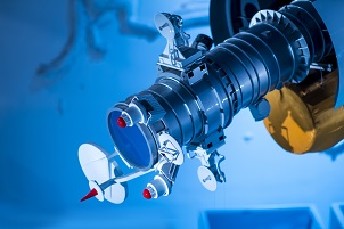
cooperation links
Map
Building strong partnerships
Learn more about the cooperation links that were established among partners in our innovation projects.
> download the map
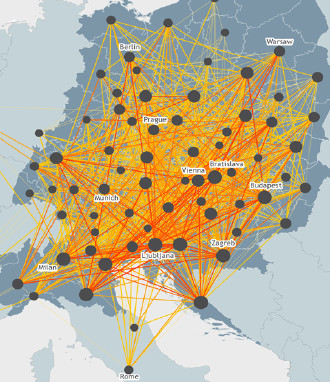
outputs and results
library
Making a lasting impact
Discover outputs and results that were created by our projects in the innovation topic.
> browse the library
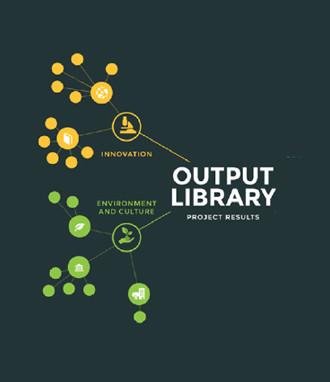
innovation in numbers
Million ERDF in total
Specific objectives
Projects
Project partners
The funding programme CENTRAL EUROPE 2007-13 was our predecessor. More than 1.300 public institutions and private businesses closely
cooperated in 124 transnational projects for the benefit of our regions. Take a look at what Interreg achieved already back then:
CENTRAL EUROPE projects 2007-2013
To find out more about projects and beneficiaries of other cross-border, transnational and interregional cooperation programmes within the European Union visit the KEEP database



